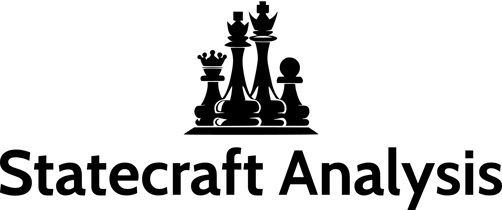The Concepts of Nation: State and Nation
INTERNATIONAL RELATIONS
Introduction
In the study of political science, the concepts of state and nation hold significant importance. While often used interchangeably, these terms carry distinct meanings and implications. This essay aims to explore the definitions, theories, and elements associated with both state and nation, shedding light on their differences and interconnections.
The Concept of State
The state can be defined as a political entity that possesses sovereignty over a specific territory and exercises control and authority over its population. It is characterized by a centralized government that enforces laws, maintains order, and provides public services. The state is often associated with institutions such as the executive, legislative, and judicial branches, which collectively govern the affairs of the nation.
According to Max Weber, a prominent sociologist, the state holds a monopoly on the legitimate use of force within its territory. This definition emphasizes the state's role in maintaining law and order and protecting its citizens from external threats.
Furthermore, the state is recognized as a legal entity in the international arena, engaging in diplomatic relations with other states and participating in international organizations. It possesses the capacity to enter into treaties, make agreements, and represent its citizens on a global scale.
Theories of State
Several theories have emerged to explain the origins and functions of the state. One such theory is the social contract theory, which suggests that individuals voluntarily surrender some of their freedoms to the state in exchange for protection and the maintenance of social order. This theory, popularized by philosophers like Thomas Hobbes and John Locke, emphasizes the consent of the governed as the basis for the legitimacy of the state.
Another theory is the Marxist theory, which views the state as an instrument of the ruling class to maintain their dominance and control over the means of production. According to Marx, the state serves the interests of the bourgeoisie and perpetuates social inequality.
Additionally, the pluralist theory posits that the state is a neutral entity that mediates between different interest groups within society. It suggests that power is dispersed among various actors, and the state acts as a facilitator of compromise and consensus.
Elements of State
There are several essential elements that constitute a state:
Territory: A defined geographical area over which the state exercises control and sovereignty.
Population: The people who reside within the state's territory and are subject to its authority.
Government: The centralized authority that enforces laws, makes decisions, and governs the state.
Sovereignty: The supreme power and authority that the state possesses over its territory and population.
These elements are interconnected and mutually reinforcing, forming the foundation of a functioning state.
The Concept of Nation
The concept of nation refers to a group of people who share a common identity, culture, language, history, and often a sense of belonging. Unlike the state, which is a political entity, the nation is primarily a cultural and social construct.
Benedict Anderson, in his influential work "Imagined Communities," defines the nation as an imagined political community, as it brings together individuals who may never meet but share a collective identity and a sense of solidarity.
Ernest Renan, a French philosopher, describes the nation as a daily plebiscite, emphasizing the voluntary nature of belonging to a nation. According to Renan, nations are not based on common ancestry or race but are constantly reaffirmed through shared values and aspirations.
National Power and its Components
National power refers to the ability of a nation to achieve its objectives and protect its interests in the international arena. It encompasses various components:
Military Power: The strength of a nation's armed forces and its ability to defend itself and project force if necessary.
Economic Power: The economic resources and capabilities of a nation, including its GDP, trade, and technological advancements.
Political Power: The influence and diplomatic relations a nation maintains with other states, as well as its ability to shape international norms and policies.
Cultural Power: The soft power of a nation, including its cultural exports, language, and influence on global trends.
These components collectively contribute to a nation's overall power and influence on the global stage.
Conclusion
In conclusion, the concepts of state and nation are integral to the study of political science. While the state represents a political entity with centralized authority and sovereignty, the nation encompasses a group of people who share a common identity and culture. Understanding the theories, elements, and components associated with both state and nation provides valuable insights into the complexities of governance, international relations, and the dynamics of identity and belonging.
Bibliography
Anderson, Benedict. Imagined Communities: Reflections on the Origin and Spread of Nationalism.
Marx, Karl, and Friedrich Engels. The Communist Manifesto.
Renan, Ernest. "What is a Nation?"
Weber, Max. Politics as a Vocation.
Note: This essay is a general overview of the concepts of state and nation and does not cover all aspects and perspectives related to the topic. Further research and exploration are encouraged for a comprehensive understanding.
